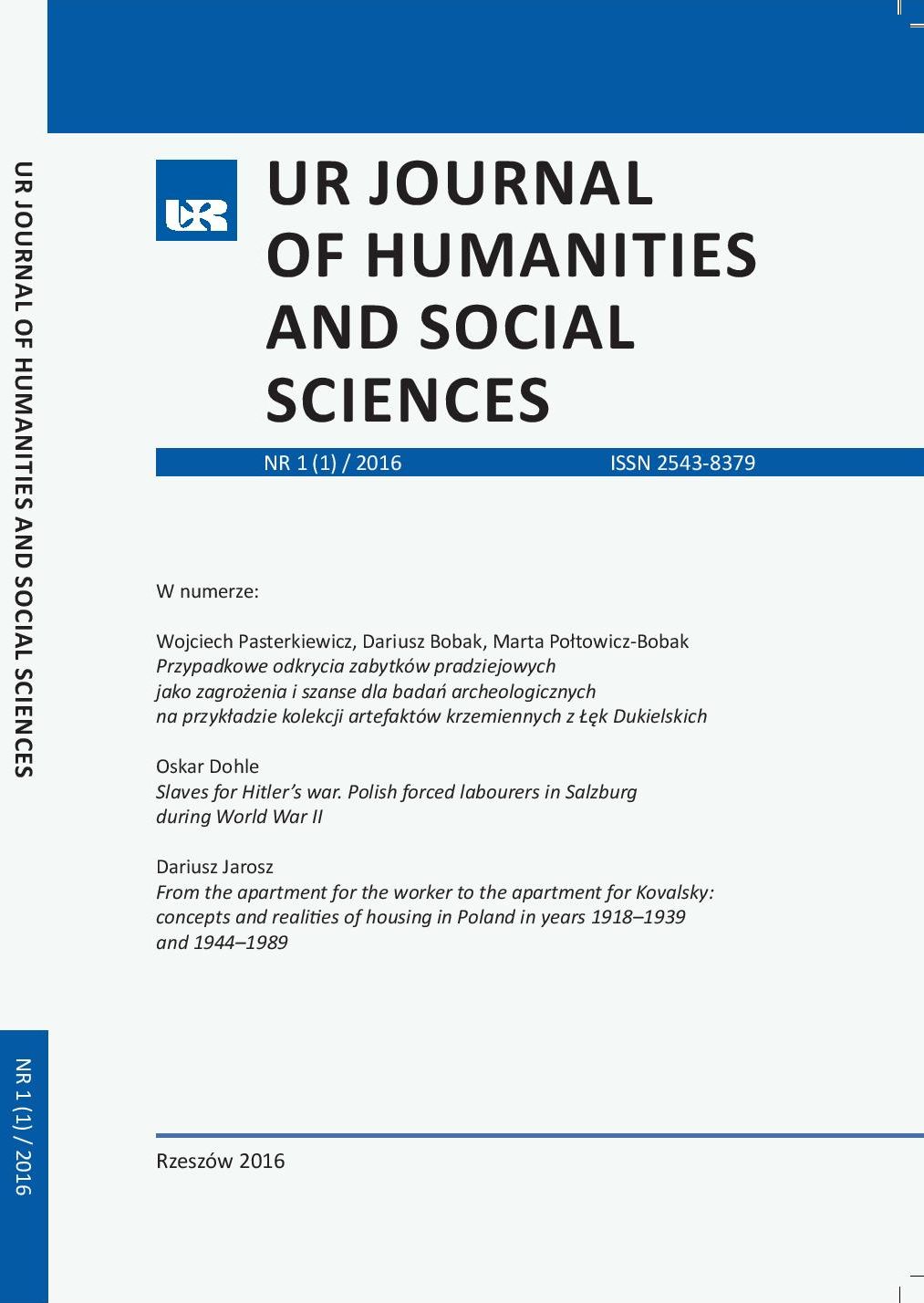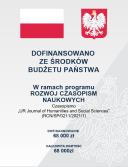Social welfare in Przemysl in the first years after liberation (1944–1950)
DOI:
https://doi.org/10.15584/johass.2016.1.5Keywords:
social welfare, Przemyśl, nursing home, charitiesAbstract
The years 1948–1950 were a difficult period for Przemyśl. After the war, the inhabitants had to deal not only with political problems, but also with huge damage sustained by the infrastructure, and a difficult economic situation. Chaos and overcrowding in Przemyśl were the result of the resettlement. It in turn began to spread poverty and infectious diseases. Many inhabitants were in a very difficult position, unable to independently earn for their living. They were mainly the elderly, the disabled, seriously ill, homeless and unemployed. Also the economic situation of pregnant women and families with young children was bad. The city authorities, which were formed at the end of the occupation, set the goals of creating an efficient system of social welfare. In the post-war conditions, however, it was quite a difficult task. The biggest problem was the lack offunds. Many planned initiatives were implemented only in part, and many more did not materialize at all.
The issues of social welfare in the city were managed by the Department of Social Welfare – a part of the City Board. It supervised institutions such as nursing homes for adults and children under 3 years, people's kitchens and care points for mothers and children. The Department also collaborated with charities, such as the Polish Red Cross and Caritas, making it easier to reach the most needy residents of all ages who required food, financial support or permanent care in an appropriate facility.
Downloads
Downloads
Published
How to Cite
Issue
Section
License
Copyright (c) 2016 Wydawnictwo Uniwersytetu Rzeszowskiego

This work is licensed under a Creative Commons Attribution-NonCommercial 4.0 International License.



